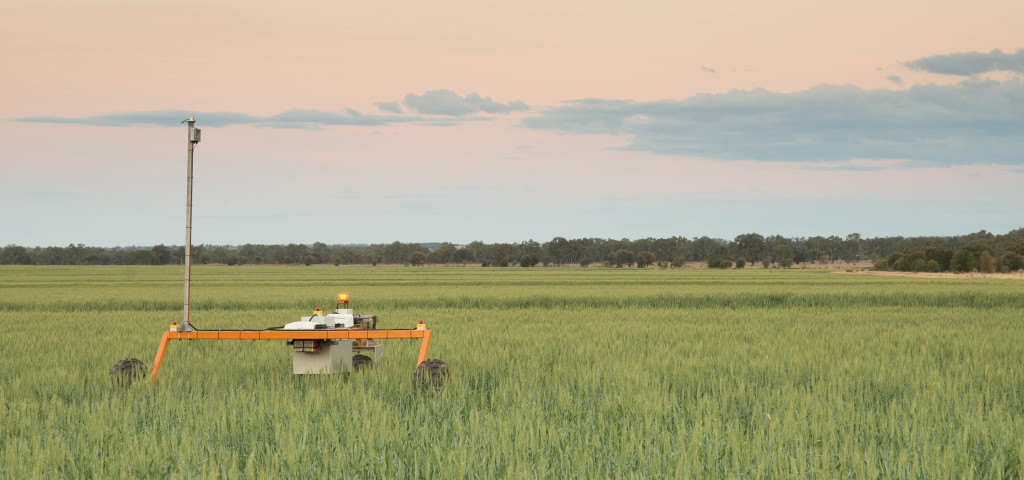
Robohub.org
10 strategies for bringing agricultural expertise to robotics startups

Source: swarmfarm
No agricultural robotics startup will be successful without a strong connection to the farm. And here are 10 strategies for creating that connection I’ve seen succeed. Thanks to the great panel at “Transforming Ag Tech” for bringing up the question. The critical thing right now is that there are many opportunities for agriculture (and other businesses) to be driving the development of technology.
On Thursday April 21, New Zealand’s government innovation agency Callaghan Innovations and Silicon Valley’s innovation non-profit SVForum organized: “Transforming Ag Tech,” an event bringing together New Zealand and US agricultural startups in typical Silicon Valley style.
I was on a panel about “the challenges and opportunities facing the agriculture sector with the growth of intelligent robotic technologies”,with Dan Bloomer, Page Bloomer Associates, NZ, Geoff Furniss, BBC Technologies, NZ and Rich Mahoney, outgoing Director of Robotics at SRI International and Silicon Valley Robotics President. (Rich is now CEO of SRI International spinoff SuperFlex.) And the question was asked: “How important is it to have agricultural expertise in robotics startups, and what evidence do I see of it in Silicon Valley?”
That got me thinking that the answer was longer than we had time for on the panel, so I’m glad it came back to bite me in the Q&A. The fact is, it is essential to have agricultural expertise, indeed, any deep domain expertise relevant to your vertical on your startup team.
- Grow up on a farm. Then get a CS or engineering degree and start an agricultural robotics startup. eg. Kent Cavendar-Bares from Rowbot.
- Immersion/passion for agriculture. Even if you weren’t born on a farm it’s not too late to become a farmer, particularly urban, aqua or factory farmer. eg. from Shigeharu Shimamura and Spread in Japan to prohobbyists BLTRobotics.
- Lean Startup Methodology. Get ‘out of the room’ and spend a very intensive period engaging deeply with your potential customers. eg. Blue River Technology who did Steve Blank’s legendary course at Stanford.
- Hit the wall hard. Be in previous startups who failed at a particular problem. Become obsessed with solving it. eg. Mick Mountz from Kiva Systems, now Amazon Robotics, who was once an engineer at WebVan.
- Become tired of being the wall. If you are hosting betas for robotics technologies who just aren’t getting it right, then hire a design shop and build it yourself. eg. Quiet Logistics hosted Kiva Systems first deployments and lost them to Amazon. So they built their own: Locus Robotics.
- Set up challenges. Commission robotics companies to solve your problem. eg. Naturipe challenge and apple industry support for Abundant Robotics.
- Use a bridge organization. Some consultants or tech xfer organizations specialize in helping technologists think like farmers and vice versa. eg. Dan Bloomer from Page Bloomer Associates, and see also Willow Garage’s classic “Need Finding” study for how engineers don’t think like end customers.
- Headhunt. Find a domain experienced CEO and put them at helm of technology team. Predominantly the tactic of tech xfer organizations with something to license and a good idea of the domain. Sometimes it doesn’t work out as planned. eg. Carl Vause had medical device background, but Soft Robotics is now doing logistics, industrial and food manipulation.
- Entrepreneur at the helm. SRI International opened their doors to serial entrepreneur Dan Steere and he’s now leading their agricultural robotics spinoff Abundant Robotics with some very strong agricultural partnerships.
- Be superheros. Difficult. You aren’t likely to randomly end up with all the experts you need on your team. What’s your strategy?

Source: Justice League Minifigs/Flickr
So recapping – there is a clear opportunity right now for businesses and non-roboticists to be actively growing robotics startups, as well as for roboticists to be making deeper connections with the agriculture domain. We need to increase world food production by 70% over next generation, and at the same time the majority of the world’s farmers are retiring. Agriculture is a massive business opportunity with social impact where the challenges align with the current state of robotics technologies.
tags: cx-Events, Environment-Agriculture






